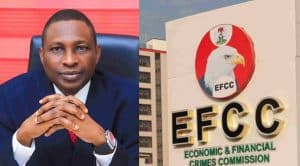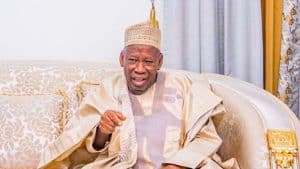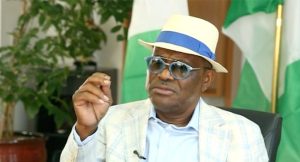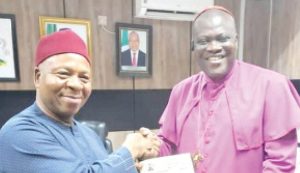The Economic and Financial Crimes Commission (EFCC) has issued a clarification regarding recent revelations made by its Chairman, Ola Olukoyede, about a religious sect’s involvement in money laundering activities.
Contrary to widespread speculation, the EFCC has stated that the religious organization in question is neither a church nor a mosque.
During a one-day dialogue on “Youth, Religion, and the Fight against Corruption” held at the Musa Yar’Adua Centre in Abuja on Wednesday, Olukoyede disclosed that the commission traced N7 billion, suspected to be part of a larger N30 billion money laundering scheme, to a religious organization.
He also mentioned that another religious group was implicated in laundering money for terrorists.
Following the chairman’s statements, there was significant media coverage and public speculation about the identity and nature of the religious organizations involved.
However, the EFCC, through its spokesperson Dele Oyewale, released a statement on Thursday addressing the misconceptions and emphasizing that the organizations under investigation do not fall within the conventional categories of churches or mosques.
Oyewale said, “The attention of the EFCC has been drawn to some misleading reports, commentaries and analyses by sections of the media, particularly Arise News, regarding the disclosure by the Executive Chairman, Mr Ola Olukoyede about money laundering practices involving some religious sect leaders in Nigeria.
“At the commission’s public engagement on Youth, Religion and the Fight Against Corruption on Wednesday, January 31, 2024 in Abuja, the Chairman had frowned at the conduct of some religious sect leaders whom he accused of being complicit in money laundering.”
Quoting Olukoyede’s words, Oyewale said, “As I’m standing before you, there is a matter we are handling: a pyramid scheme that involves over N30billion fleeced from Nigerians.
“Along the line, some people died, some victims collapsed and all of that. We were able to trace over N7billion to a particular religious body, and I said, to write a letter to the leader of that religious sect, and we did.
“The next thing we saw was a restraining order. We got a restraining order restraining us from recovering the money. Meanwhile, people have died along the line. Money traced directly to your body, and that is what we are battling. Of course, we have appealed, and this is the situation that is facing us, religious leaders.”
Oyewale added that the EFCC Chairman equally disclosed, “When I was the Chief of Staff, we investigated an issue of money laundering, somewhere in this country. There is a particular religious sect that laundered money for terrorists. These are the problems we are battling with.”
Speaking further, the EFCC’s spokesman noted that the EFCC boss neither mentioned a church, a mosque, nor any particular religious entity.
Oyewale added, “Olukoyede neither mentioned a church, mosque nor any particular religious entity. Unfortunately, his comments have been twisted with mischievous connotations.
“The groups fingered by the EFCC chair are religious sects, not a church or a mosque.
“Those subjecting this disclosure to sinister interpretation are on to mischief and should be ignored.
“The EFCC’s boss is focused on his assignment of tackling all shades of economic and financial crimes and would not be distracted.”
The post Terrorism: Religious Sect Indicted For Money Laundering Not Church, Mosque – EFCC appeared first on Naija News.







